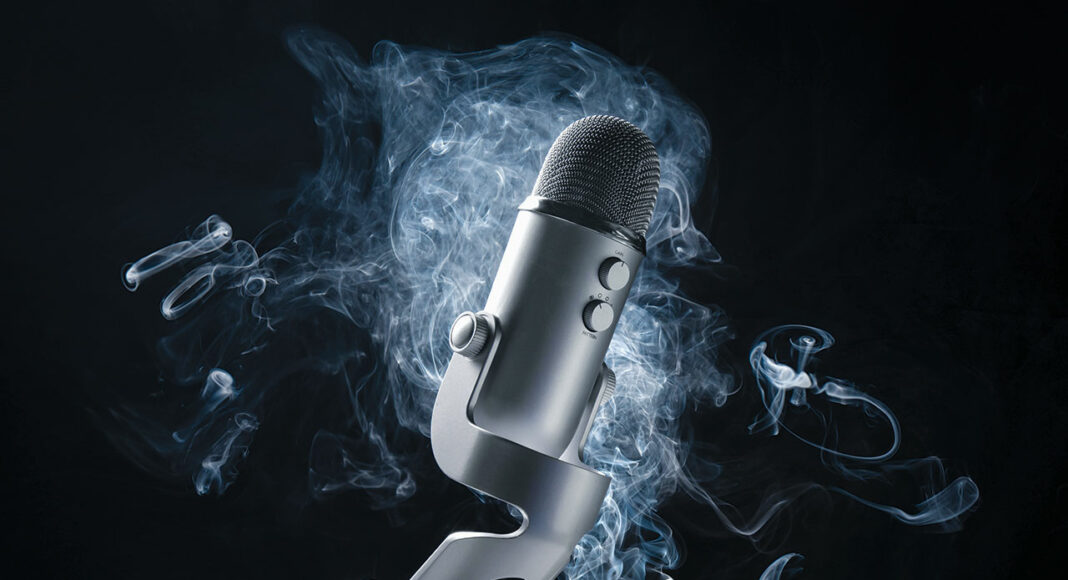Back in 2010, a spate of scare stories about “digital drugs” flashed across local TV news channels. It was exactly what it sounded like: a new drug was being delivered over the Internet and into the brains—and souls—of our precious children.
These “drugs” were audio files that supposedly had a euphoric effect, known as an autonomous sensory meridian response (ASMR). But in the last decade, the popularity of ASMR has exploded. Suburban moms and guys in trucker caps are listening to sound files that some claim have relaxing or pleasurable effects, such as tingling sensations in the head and spine. Generally, ASMR includes things like people whispering, or crumpling paper. Debate abounds over whether the effect is biological, like the high caused by THC or LSD, or merely psychological, like the rush some people get when the band comes back in after a false ending.
Either way, the effect is real enough to the people experiencing it. ASMR doesn’t work for everyone, but it seems harmless enough for those who partake. And the phenomenon has become so mainstream that it’s become a business. An outfit called I-Doser, for instance, made its name in so-called “i-dosing,” selling sound files that supposedly get one high for between $2 and $10.
I-Doser makes no bones about its wares being drug-like. The names of some of the files sound like they could be weed strains, including “Winter Solstice” or “Dark Forest.” Others are more explicit, carrying pictures of mushrooms. One is actually called “Virtual DMT Trip.” The files are also sold for their “relaxing” and “meditative” effects, and for eliciting lucid dreams or relieving insomnia.
Those sorts of promises prompted the Mustang Public School District in Oklahoma, to send a letter to parents warning them about the “digital drug craze,” in 2010 during the height of the i-dosing scare. For a time, the district even forbade students from bringing iPods to school (younger people: the iPod was Apple’s dedicated music device, the need for which was obviated by the iPhone).
“Kids are going to flock to these sites just to see what it is about and it can lead them to other places,” Oklahoma Bureau of Narcotics and Dangerous Drugs spokesman Mark Woodward told News 9 in Oklahoma at the time, when that news station ran an entirely credulous story about the phenomenon.
A decade later, the fear has mostly fizzled, but many remain skeptical of the lofty promises by the companies that pedal the trippy soundwaves. The owner of I-Doser, Nick Ashton, participated in a Reddit Q&A a few years ago and was widely mocked.
“How does it feel scamming thousands of druggies all over the world?” one Redditor asked him. “I believe it’s not a scam if they (and we are referring to people, not derivative stereotypes) find worth in our products, have results, and enjoy our advancements,” Ashton shot back.
Those “advancements” are hard to quantify, though. Some people in the forum reported experiencing effects, but the science behind “digital drugs” is scant at best.
I-Doser operates from the theory that “binaural beats” change brainwave patterns. Each channel of a stereo signal plays tones at different frequencies, and the brain is supposedly “tickled” by the disparity.
Yet, one of the few studies on binaural beats found no solid evidence that they’re truly effective, much less that the specific effects promised can actually be achieved. “I just don’t think that there is enough evidence showing that it really does create those altered states,” Dr. Helane Wahbeh, a researcher at Oregon Health and Science University, told NPR.
There’s also no indication that listening to this stuff does any actual harm, even if the warnings issued in 2010 (and occasionally since then) by local officials and TV news outlets made it seem that way.
.Pot Shots: I-dosing Scared Parents a Decade Ago, Now They’re a Target Market




